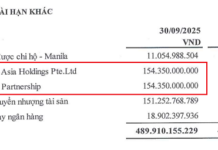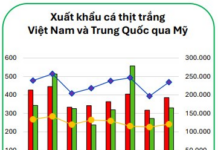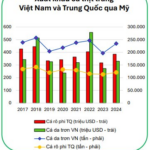The cryptocurrency market is bouncing back as the price of Bitcoin reaches $52,000 on February 14th.
This is the first time that the price of Bitcoin has reached this level since November 2021, marking a significant recovery for the largest cryptocurrency after a prolonged downturn.

In November 2022, Bitcoin experienced a major drop in value following the collapse of the second-largest cryptocurrency exchange, FTX. It fell to a low of over 75% compared to its all-time high of nearly $69,000 achieved a year earlier. While Bitcoin has since recovered, it has not been able to reclaim its previous record.
According to CNBC, the recent price increase of Bitcoin is largely attributed to the launch of Bitcoin spot exchange-traded funds (ETFs) in the United States on January 11th. ETFs allow individual investors to indirectly invest in Bitcoin through stock exchanges instead of cryptocurrency exchanges.
The approval of these ETFs by the U.S. Securities and Exchange Commission (SEC) makes it easier for investors to access Bitcoin and signals an improvement in the legal status of the cryptocurrency market after a period of scandal. This has attracted new investors as well as old investors who have returned. On February 14th, the total value of Bitcoin in circulation surpassed $1 trillion for the first time since 2021. On this trading day, Bitcoin traded at an average price of $51,793.
According to CNBC’s analysis, if an investor had invested $1,000 in Bitcoin a year ago, it would have increased by 133% to about $2,331 as of February 14th. If the investment had been made five years ago, it would have increased by 1,352% to about $14,524.
Investors would have made even greater profits if they had invested in Bitcoin earlier. Specifically, if someone had bought $1,000 worth of Bitcoin 10 years ago, it would have increased by 7,644% to $77,443 as of February 14th.
For those who bought Bitcoin on January 11th, when the Bitcoin ETF began trading, that investment is now worth $1,113.
Due to the speculative nature of cryptocurrency, financial experts often recommend investing with a willingness to accept losses. They suggest that investors may consider buying Bitcoin to diversify their portfolios.
“I believe that most retail investors can hold a small amount of cryptocurrency, about 1 or 2% of their portfolio,” said Chris Diodato, a financial planner and founder of WELLth Financial Planning. “I wouldn’t advise holding a higher proportion because, in addition to high volatility, cryptocurrencies do not generate cash flow like traditional investment channels. Currently, the value of cryptocurrency is only equal to the price that someone is willing to pay for it.”
Instead of selecting individual stocks or other assets, many experts recommend investing in ETFs as a way to automate portfolio diversification. As of February 14th, the S&P 500 index has increased by about 21% compared to the same time last year. It has risen by about 82% since 2019 and about 172% since 2014.





































